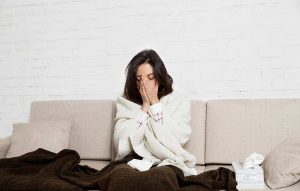Whatever you exercise for a nice body shape, losing weight, or keeping healthy, regular exercise is really inspiring. For many young girls, they try kinds of exercises to keep away from the fat. Most people think that exercise is good for our health anyway.
But be careful excessive exercise may cause injuries to your body, both the fresh and experienced exercisers may make this mistake. If the physical body can’t bear that exercise overload, it would appear a series of reactions to alert exercisers to take a rest. If people can’t realize those symptoms, they may cause permanent damages.
What is excessive exercise?
Excessive exercise means the physical body bears too much pressure, which hasn’t been adjusted and rescued promptly. It can’t be estimated shortly. Although these people keep regular exercise, their fitness is worse and they may feel more tired with muscular soreness. Below are some symptoms to help to check if you are overdoing exercises.
Low-quality sleeping
After exercising, the physical body should be very tired commonly. On the contrary, excessive exercise makes the body feel too excited to sleep. Or people would wake up easily from sleep at midnight. They can’t recover from the severe exhaustion even through a night’s sleep.

Pain or injury in some parts of the body
When exercising, the painful knee may be a symptom that alerts people to adjust the exercise methods. One of my friends did high-intensity exercises for 2 weeks. Later his keen felt too painful to go up the stairs.
Weaker physical condition
Moderate exercise should make people energic. They expect to push limits to do more exercise. However, the people who overdo exercises would not feel interested in any sports but prefer sleeping at once.
Low productivity of work or study
Exercise can secrete endorphins, which make you feel relaxed after. This feeling can last for several hours or even days. Conversely, people who have excessive exercise feel starved of energy to support daily work and study.
Frequently sick
Normal exercise should strengthen immunity. But excessive exercise makes people get sick frequently cause their immune system becomes weaker. They would be easily infected by others who have caught a cold.

Acne or irregular period
For women, they would have acne or irregular period easily cause their physical condition becomes too poor. It’s essential to reduce exercises under this situation.
How to prevent excessive exercises?
Follow an exercise plan to fit your lifestyle.
Do remember the aim is to exercise for a healthy physical condition, not to compare who is the winner of more exercises. So follow an exercise plan according to different physical conditions. It’s very important to avoid these exercise issues.

Increase the amount of exercise gradually
The best way to avoid excessive exercise is to increase the exercise gradually with the range that the physical body can accept.
The experts advise to follow the 10% rule: Not increase the exercise by 10% per week from last week. And then take a week to make the physical body get rid of fatigue, after around 4-week exercises.
Have adequate rest
Adequate rest is a largely ignored component of most exercise plans. Make sure that your physical body can get one day off per week and have enough high-quality sleep. Try not to exercise 2 hours before bed. Regular rest is necessary to promise that the physical body can accept more exercise in the future.
Reasonably balanced diet
When exercisers suffer from serious muscular soreness, it’s critical to supplement the nutrients and inorganic salts in case of malnutrition. A healthy physical condition and exercise are developed on adequate nutrition. Those top 9 foods can provide high protein for fitness.

Combine high-intensity exercises with some easy exercises
When making an exercise plan, it’s highly recommended to combine high-intensity exercises with some easy exercises. For example, arrange a day for easy exercise when you’re doing other high-intensity exercises for a long time. This can help to increase more interest to exercise and improve physical resilience.

